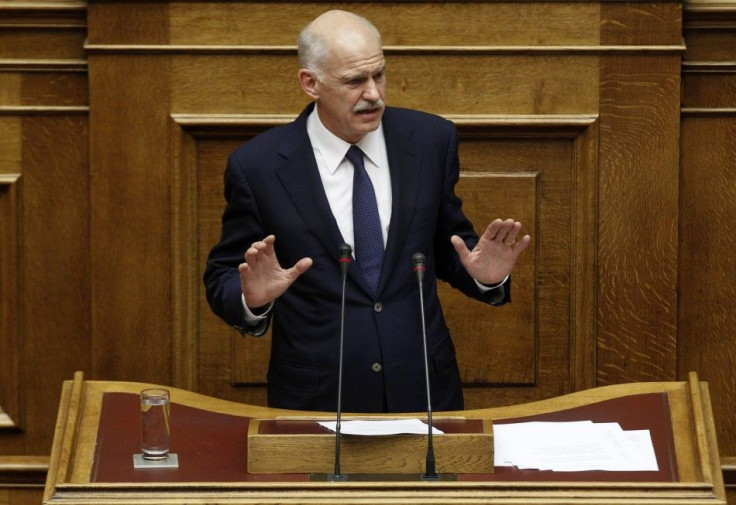Papandreou Faces Crucial Confidence Vote

Greek Prime Minister George Papandreou, in the political fight of his life, faces a confidence vote in the Athens parliament over his regime’s handling of the debt crisis.
All this is happening while hundreds of miles away in Cannes, France, world leaders are debating Greece (and Europe’s) financial futures.
The Greek government is in deep turmoil; just four days after Papandreou dismayed the European community by proposing a referendum to determine the fate of the latest rescue package hammered out by Eurozone officials in Brussels last week.
Since that time, rumors and counter-rumors have swirled that Papandreou may resign, that the referendum would be cancelled, and that both opposition lawmakers and members of his own ruling Pasok party demanded he step down and call a snap early election.
Evangelos Venizelos, Greece’s finance minister and long-time rival to Papandreou, has definitively stated that the referendum has been shelved.
Meanwhile, Papandreou is apparently refusing to step down. He has also rejected an early election as unfeasible.
But even if he should win Friday’s confidence vote, his future still remains cloudy, given the enormous amount of anger he has elicited across Greece and the continent. He would then likely have to form a new national unity government, with the principal opposition leader, conservative Antonis Samaras, playing a dominant role.
At present, the socialist Pasok party has a very slender majority in parliament (152 seats out of 300), following a number of resignations and defections.
BBC reported however that several Pasok MPs (who have expressed their displeasure with Papandreou) may still support him in the confidence vote since a referendum likely will not happen.
It is unclear what the opposition will do, but it is well worth remembering that several members of the New Democracy opposition party walked out of parliament on Thursday during Papandreou’s rambling speech.
Samaras has blasted the Prime Minister repeatedly and has demanded he quit.
I am wondering; Mr. Papandreou almost destroyed Greece and Europe, the euro, the international stock markets, his own party in order to ensure what?,” he told reporters.
“So that he could blackmail me and the Greek public? Or to ensure what I had already said several days ago; that I accept the bailout agreement as unavoidable?
Still, European markets appear to have embraced the likely cancellation of the referendum. In early Friday afternoon trading, the major indices in UK and Europe are up between 1 and 2.8 percent.
© Copyright IBTimes 2024. All rights reserved.





















